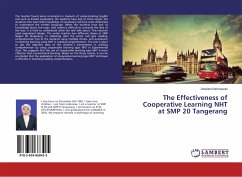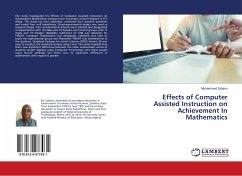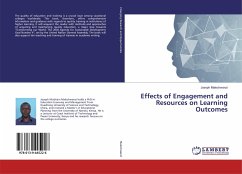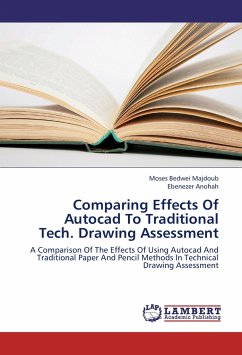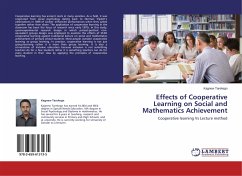
Effects of Cooperative Learning on Social and Mathematics Achievement
Cooperative learning Vs Lecture method
Versandkostenfrei!
Versandfertig in 6-10 Tagen
36,99 €
inkl. MwSt.

PAYBACK Punkte
18 °P sammeln!
Cooperative learning has ancient roots in many societies. As a field, it was originated from social psychology dating back to Norman Triplett's observations in 1898 of cyclists' enhanced performances when they cycled together rather than alone. The application of cooperative learning in the classroom has been the focus of research since early 1970s. In this study, quasi-experimental research design in which pretest-posttest non-equivalent groups design was employed to examine the effects of STAD cooperative learning against traditional lecture on social and mathematics achievement of primary s...
Cooperative learning has ancient roots in many societies. As a field, it was originated from social psychology dating back to Norman Triplett's observations in 1898 of cyclists' enhanced performances when they cycled together rather than alone. The application of cooperative learning in the classroom has been the focus of research since early 1970s. In this study, quasi-experimental research design in which pretest-posttest non-equivalent groups design was employed to examine the effects of STAD cooperative learning against traditional lecture on social and mathematics achievement of primary school students. Most people consider cooperative learning as group learning. In practice, cooperative learning is not just group-learning rather it is more than group learning. It is also a cornerstone of inclusive education because inclusion is not something teachers do for a few students rather it is something teachers can do for every student in their class by applying the principles of cooperative learning.




